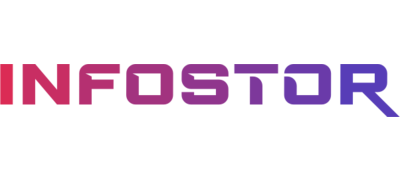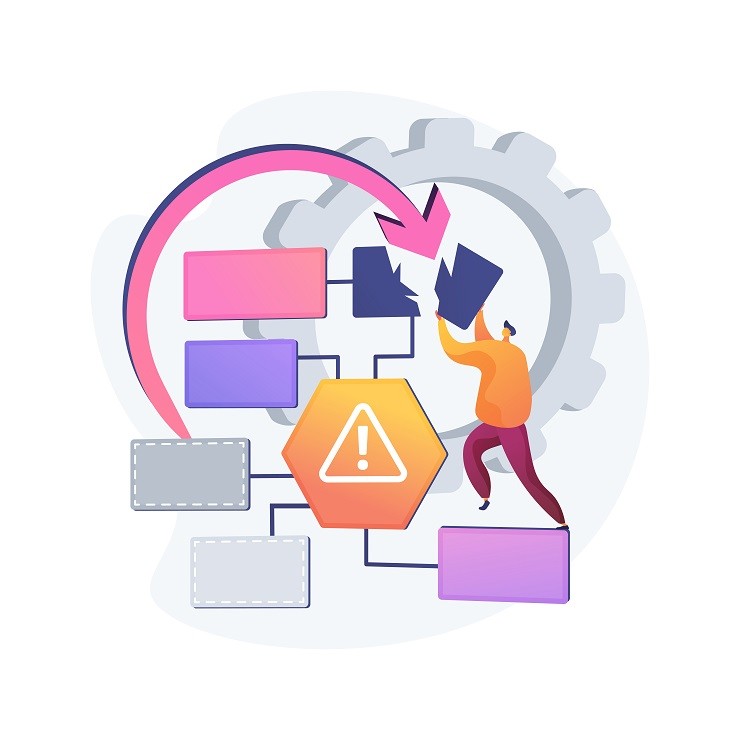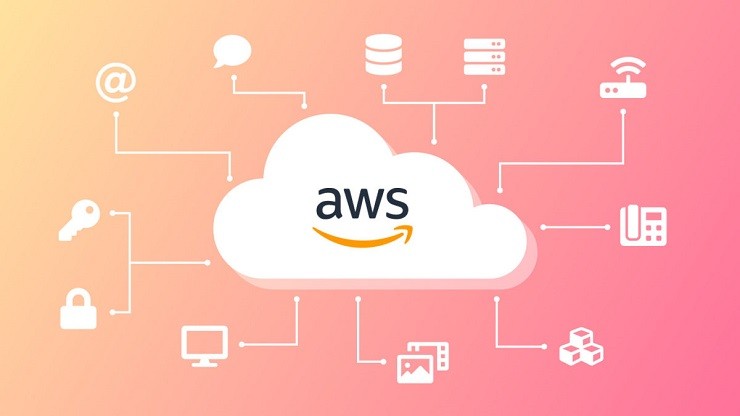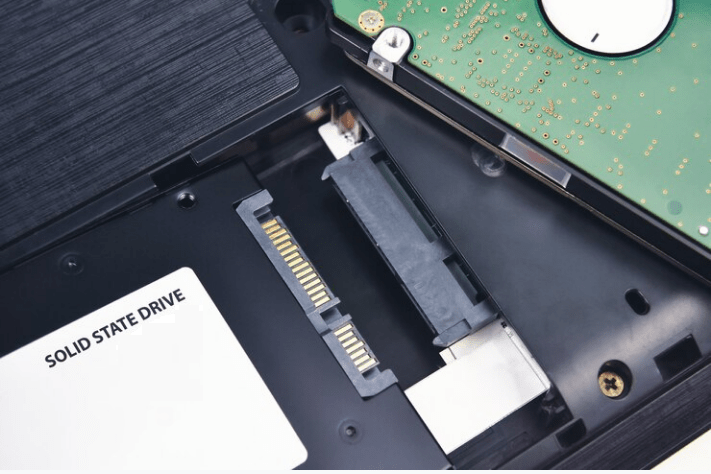Isilon has released a new version of its OneFS operating system in addition to two data-protection and management applications that run on top of OneFS. SnapshotIQ performs point-in-time copies of a file system, and SmartConnect 2.0 adds NFS fail-over in addition to policies for workload balancing.
The 4.5 version of OneFS has three key improvements: Isilon increased the maximum file system size from 250TB to one petabyte. The maximum number of nodes increased from 35 to 96. And OneFS 4.5 now includes N+3 and N+4 data protection in addition to N+1 and N+2.
According to Sujal Patel, Isilon’s founder and CTO, “N+1 is analogous to RAID 5, except that it’s capable of withstanding a full-node failure. N+2 can handle two full-node failures simultaneously. But as cluster sizes increase, users need to not only protect against failures and repair quickly, but also they need to prepare for more than two simultaneous failures.“ He adds that N+3 and N+4 allow the system to withstand three and four failures, which goes beyond RAID 6.
Isilon claims that its N+3 and N+4 data protection require only 20% to 25% overhead-the same as N+2.
The new SnapshotIQ software allows a virtually unlimited number of snapshots per cluster-up to 1,024 per directory. The schedule can be based on any arbitrary directory or sub-tree, unlike some systems that only do snapshots at the volume level. It also offers capacity-saving features.
SnapshotIQ is integrated with Microsoft’s Virtual Shadow Copy Service (VSS), so users who want to restore deleted files or directories can restore their own files without administrator intervention.
The new SmartConnect 2.0 software adds support for dynamic NFS fail-over and failback. The software also allows administrators to create policies that balance connections to an Isilon cluster based on CPU utilization or throughput requirements. It creates the concept of zones in the system so that applications can be assigned to different segments of the cluster.
SnapshotIQ is licensed on a per-node basis, starting at $2,950. SmartConnect is priced at $4,950 per node.
Adaptec rounds out NAS line
Adaptec recently introduced three NAS systems: the Snap Server 110, 210, and 410, which will replace the Snap Server 1100. The new products enable unified file and block (via iSCSI) services.
They also leverage Adaptec’s Guard-ianOS operating system, which now runs across the entire line of Snap Servers. The NAS appliances support the CIFS, NFS, and AFP protocols and range in capacity from 160GB to 2TB.
Optional software includes CA’s eTrust anti-virus software and BakBone’s NetVault backup software for disk-to-disk (D2D) or disk-to-disk-to-tape (D2D2T) archiving. StorAssure continuous dataprotection (CDP) software and Snap Enterprise Data Replicator (EDR) are also available for data protection and disaster recovery.
The single-drive Snap Server 110 is available in 160GB ($549), 250GB ($649), and 500GB ($949) capacities. The dual-drive 210 is available in 500GB ($1,149) or 1TB ($1,899) Serial ATA (SATA) configurations., while the four-drive Snap Server 410 comes in 640GB ($1,995), 1TB ($2,495), or 2TB ($3,495) configurations.
Infortrend fields iSCSI-SATA RAID
Infortrend’s EonStor A16E-G2130 is a 16-bay iSCSI-to-SATA RAID array that is based on the company’s ASIC400, a 933MHz PowerPC GL CPU, and four Gigabit Ethernet ports. The disk arrays support RAID 6, which protects against simultaneous drive failures.
Other features include multi-pathing software and support for jumbo frames, CHAP authentication, load-balancing, and automatic fail-over.
Xtore JBOD supports SAS/SATA
AIC’s Xtore business unit this month began shipments of the XJ-SA24-448R-S JBOD disk enclosure, which supports up to 48 SAS or SATA disk drives in a 4U form factor with capacity up to 24TB. Host bandwidth is 48Gbps across dual expanders. Dual-channel SAS and single-channel SATA are standard, with dual-channel SATA available as an option. SAN add-on modules include dual Fibre Channel ports, dual SAS host ports, and dual iSCSI ports.
Spectra library aimed at SMBs
Spectra Logic’s T24 LTO-3 tape library stores up to 19TB (with compression) in a 2U form factor and can be configured with one or two half-height LTO-3 tape drives and 12 to 24 tape cartridge slots. With compression, the drives can transfer data at up to 240MBps. The T24 is available through CDW at an entry-level (single-drive) price of $4,385.
Separately, Spectra Logic announced that it will offer Symantec’s Backup Exec 10d QuickStart Edition software on Spectra Logic’s entry-level and midrange tape libraries and RXT disk-based backup systems.
NeoPath upgrades NFM systems
NeoPath Networks’ SMARTtouch Software 2.0 is the cornerstone of the company’s network file management (aka NAS virtualization) platforms and runs on the File Director 220 and the new blade-based File Director 7200 Cluster appliances.
The 64-bit SMARTtouch software provides namespace virtualization, file migration, real-time file characterization and analysis, policy-based file management, and link aggregation, which is new in the 2.0 version. The move to 64-bit code virtually eliminates restrictions on the size of memory supported (which was previously limited to 4GB in the 32-bit version of the software).
The File Director 220 and blade-based 7200 are both priced at $45,000. The 40-port File Director 7200 has a throughput of 30Gbps, or 500,000 I/Os per second, according to NeoPath.
ACNC ships SATA RAID
Based on its fifth-generation RAID controller architecture, ACNC’s JetStor SATA 516F RAID arrays combine SATA drives with 4Gbps Fibre Channel host connections. The 16-bay array features a parity-assist ASIC, PowerPC RISC processor, and storage capacity of nearly 12TB in a 3U enclosure.
The 516F has redundant hot-swappable power supplies with two independent power inputs, turbo cooling fans, and an embedded RAID controller. The company claims bandwidth of 600MBps. Advanced Data Sentry RAID-6 technology protects against simultaneous drive failures.
Data Domain de-duplicates
Data Domain recently began shipments of the DDX series of data de-duplicating storage arrays, which are targeted at data centers. The DDX series is powered by the new DD560 controller and offers up to 6.4TB per hour of sustained throughput, according to the company, and up to 15 petabytes of capacity for long-term online retention.
Data Domain claims that its Global Compression technology can lead to pricing as low as $0.35 per gigabyte.
The DDX series uses the same operating system as the Data Domain Appliance and Gateway system. The OS has been upgraded to 64-bit, and it is possible to federate multiple DDX systems together under one control center. In addition to backing up data, the DDX series can eliminate tape-based backup infrastructure at remote offices. The remote offices can use Data Domain’s WAN technology to perform WAN vaulting to the core data center. It provides local retention for fast recovery from disk and disaster-recovery capability based on replication back to the data center. The DDX supports up to 320 remote locations with common management.
Data Domain claims data reduction of 20x due to its data de-duplication technology. This reduction in data reduces the amount of hardware required in data centers in terms of number of drives, controllers, physical space, air conditioning, etc.
Systems can be configured with 4 to 16 DD560 or DD460 controllers. The arrays and controllers are designed for data centers with at least 20TB of application data.
Backed by Data Domain’s Data Invulnerability Architecture, the DDX series provides continuous recovery verification along with RAID-6 (dual-parity) protection against simultaneous drive failures.
A single DD560 controller is priced from $95,000 for 100TB of capacity. The systems are available with integrated disks, or users can add disks from third parties.
FilesX adds ‘true’ CDP
The 3.0 version of XpressRestore, from FilesX, features “true” continuous data protection (CDP) as a complement to frequent or scheduled snapshots. The company claims recovery time in minutes for applications such as Microsoft Exchange, Internet servers, and databases. The software can be custom-tuned for specific applications.
FilesX previously offered “near-CDP” with its CDP on Demand feature. XpressRestore recorded every change at the block level and then took application-consistent snapshots with unlimited frequency.
XpressRestore offers block-level CDP with file-, volume-, or system-level restore levels. It performs one full backup and then incremental backups during which only changes to the data are recorded.
Users can configure the CDP window so they can recover to any pre-determined point in time. The user interface displays consistency points and events, such as the close of a quarter. XpressRestore also supports bare-metal restores.
FilesX also offers XchangeRestore, which allows users to restore their own Exchange files without administrator intervention. Pricing for XpressRestore ranges from $1,750 to $2,000 per server.




